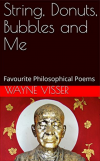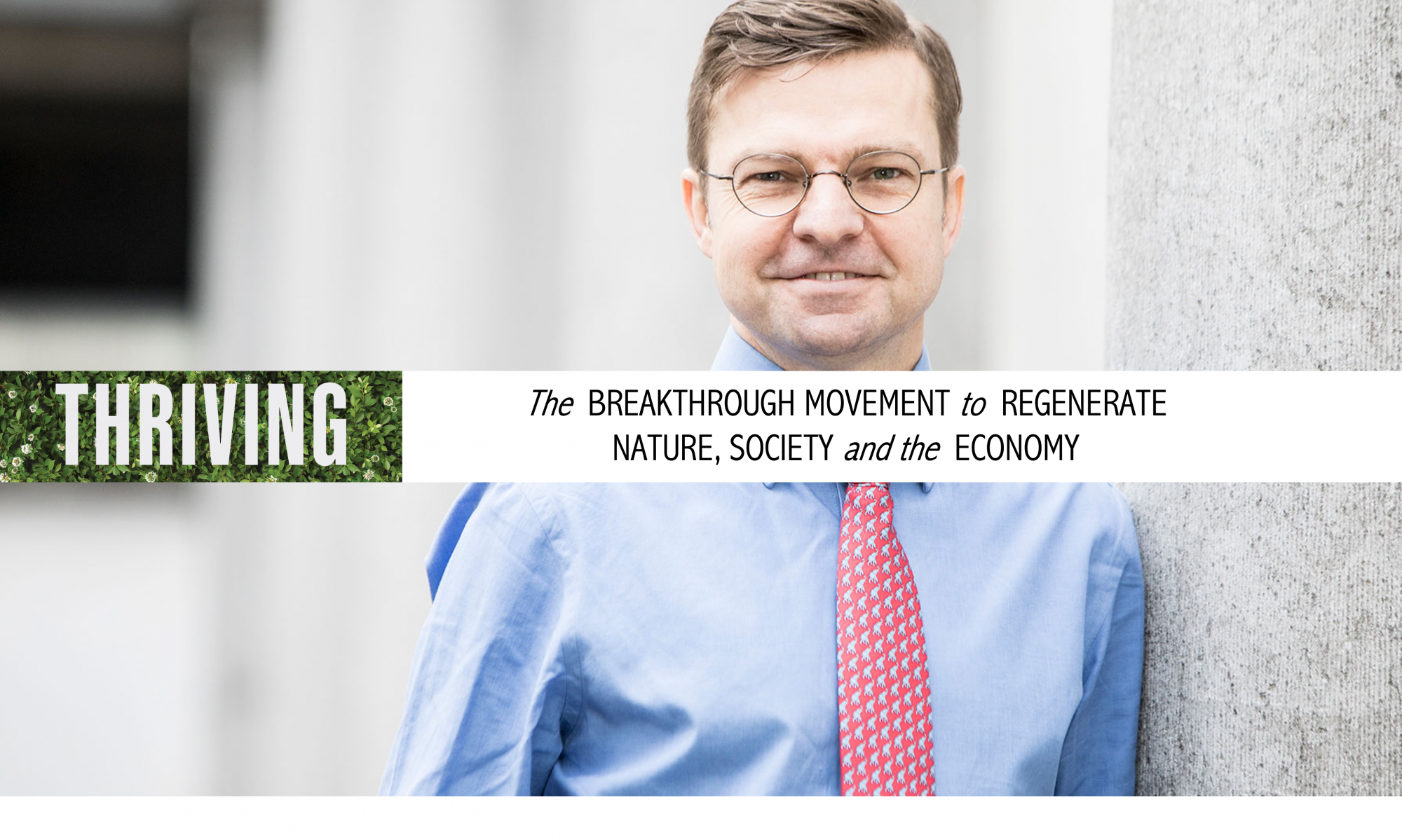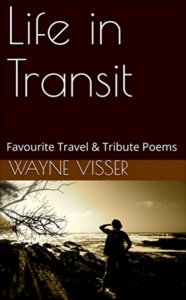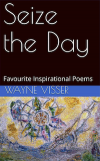
12 June 2008
Sometimes, my life seems surreal, and perhaps no more so than now, having visited China, which has for so long drifted like a cloud across the sky of my dreams. It was a little more than 20 years ago that I first peered through the windows of Theosophy and Unitarianism and gazed into the still pond of Buddhism and was captivated by the flowing river of Taoism.
At first, I discovered the strange, exotic (and some would say fantastical) Tibetan world of Lobsang Rampa. I also remember having a book of Taoist poetry and reading a wonderful parable story full of Eastern wisdom that Bob Steyn introduced me to (it was called something like Journeys on the Razor-edged Path). I was so inspired by these Eastern philosophies that, on my 21st birthday, I added Tao as a middle name and later, in 2004 on a family trip to California, I devoured a pocket version of the Tao te Jing.
Not only was I fascinated by China’s ancient philosophies, but also seduced by the artistic beauty of its calligraphic writing and its impending economic rise to power as one of the ‘waking dragons’ of the East. For all of these reasons, I registered for a correspondence course in Mandarin through the University of South Africa in 1994. Unfortunately, I never completed the course, since my management consulting work with Gemini became too demanding, and I still sometimes wonder how different my career might have been had I persevered.
Be that as it may, I finally made it to China! I arrived on 1 June and took part in the China Europe International Business School (CEIBS) conference on Responsible Competitiveness from 2-3 June, which Dirk and I used as a platform to launch The A to Z of CSR. I also attended the Being Globally Responsible Conference on 6-7 June, and acted as a judge for the Innovate China international MBA competition on 8 June. On 7 June, I met with Prof Zhu from Tonji University, who is a partner with CPI on the Sustainability Leadership Institute proposal for the planned eco-city at Dontang.
All this gave me a fascinating insight into CSR in China. I am struck by the strong, positive role of government, which may give China the ability to leapfrog the West on tackling social and environmental issues. The danger is that it will get stuck in the ‘CSR as philanthropy’ mode, evidenced by the competitive ranking lists of corporate donations following the Sichuan earthquake disaster. However, if this can evolve into a more holistic understanding of CSR, built on the platform of the government policy of ‘harmonious society’, I really believe China may surprise the West.
Despite labour conditions remaining a concern, my impression is that human rights abuses are the exception rather than the rule, and that China’s sustained economic boom is doing far more social good than harm. Reconciling its addiction to growth with environmental constraints may prove its most difficult challenge yet. But even here, there are early signs that the government understands the problem and is acting decisively to address it. For example, Shanghai is spending 3% of its city GDP on environmental clean-up. Although it clearly has a long way to go (the smog is so bad, I didn’t see blue sky once during the 7 days I spent there!), this level of environmental spend by far exceeds anything in the West.
Outside of a work context, China was equally captivating. Its ancient sites are a fascinating glimpse into a long history and incredibly rich culture. I managed to visit the Jade Buddha temple in Shanghai, the gardens and water village of Zhujiajiao, and the Summer Palace, Heavenly Temple, Forbidden City, Great Wall and Ming Tombs in Beijing. Even the somewhat tacky tourist-oriented silk, pearl and jade factories and tea houses proved interesting. I was also fortunate to be hosted in Beijing by someone I met at the CEIBS conference (Clare Pearson), so through her friends I got an impression of life in modern China beyond the tourist traps. Now, I find myself reflecting on what makes China remarkable.
The first remarkable thing, I would say, is how unremarkable life in the cities is. Westernisation and capitalism have already turned China into a country that displays more similarities than differences when compared to other modern economies. The major difference, of course, is the political system, which is best described as a one-party state, rather than communism or socialism. However, seeing first-hand how well the system seems to work for its 1.3 billion population, including allowing civil freedoms that are almost on a par with the West, it is difficult to remain smugly superior or evangelical about democracy. If anything, China’s ability to act decisively and to rapidly implement policies at scale in the face of massive social and environment problems is a virtue rather than a vice.
There is no doubt that China has invented a hybrid political model that looks set to endure, despite the country’s continued globalisation and increasing trade and cultural influences from the West. And whereas that may have raised ideological concerns before my visit to China, I am far less disturbed by the prospect now. On the contrary, I believe China will become the world’s economic superpower and be no less benign than the US is today. Furthermore, I expect it may even set an example for other countries and companies in terms of sustainability and responsibility in the medium to long term. A clue to my optimism lies in what the CSR Director for Bayer in China said to me – above all else, China prizes stability. Stability, in turn, can only be maintained under conditions of social upliftment and environmental improvement.
Above all else, I believe China is a master of learning. And as I read in today’s China Daily, the character for learning (xi) is partly derived from the non-simplified character meaning ‘feather’ or ‘wing’. Hence, the concept is inspired by a bird learning to fly. Nothing could be a more apt metaphor for China, which is like a young phoenix that has flown the nest and will soon be at home in the sky, so long as its two wings – social and environmental integrity – do not become damaged in its rapid upward flight.
14 June 2008
The Dragon and the Phoenix
You are the mighty dragon
Whose history is lost in the mists of time
Shrouded in mystery and enchantment
And breathing fire
Your dragon emperors
Ruled the endless skies and earth
With flaming tongue and snaking tail
And armoured scales
The dragon flies again
Awaking from its night of red dreams
Craving the horded treasures of the West
And rising like a golden sun
Waxing like a silver moon
Shining the ancient wisdom of the East
Trailing iridescent sparks of change
The phoenix flies again
Cocooned in silk
And flowing with ripples of water
Through peaceful rockeries and gardens
Were your phoenix empresses
Singing spells
And rising in a blaze of coloured feathers
From the ashes of grey modernity
You are the mystical phoenix
30 May 2010
Peking University campus – There is a large lake about 5 minutes walk away, where I plan to walk (or maybe even jog!) every day. There are also several sculptures that I am taking pictures of.
I once started a university course in Mandarin. I never got very far, but it is an indication of how long I have been fascinated with Chinese culture, and in love with its written language. To me, the script is like art. The closest thing to a religion that I align myself with these days is Taoism – the ancient Chinese philosophy of harmony and balance. The Tao Te Ching by Lao Tzu is poetry and wisdom combined.
I think the West is far too judgemental of China. No doubt, there are some policies that we would find difficult, but what I see is an emerging nation, full of dynamism and progress, including on many social, environmental and ethical issues. Just this morning, I read in the paper that new regulations make evidence obtained under duress inadmissible in court.
There’s a palpable sense here that the only way is up, that the future is all to play for and that a combination of vision, national pride and hard work make all dreams possible. It all seems rather familiar – the same sort of ideals that built the American Dream. The 21st century will be the century of the Chinese Dream.
02 June 2010
One of the things I love about the Chinese is that they value the artistic side of life. And not just paintings and sculptures. They see art in nature. For example, in many temples and palaces, they will simply frame a slab of marble stone with a beautiful pattern, or erect an interesting stone formation as a sculpture, or even just create a window frame with a view onto a tree or garden.
06 June 2010
It is Sunday, my last ‘free’ day before my workshop tomorrow. Last night, it was good to get off the campus and into the city. The underground is excellent – very clear and simple, with constant updates. The trains have electronic maps of the tube lines, where a flashing red dot and a green arrow tell you exactly where you are and the direction you are travelling. And it is ‘cheap as chips’ – about 20p to travel anywhere in the city. Even the taxis are cheap – about £5 to go from the centre to the outskirts of the city (and Beijing is bigger than London).
After a British embassy event choral event, I went on with some friends to the ‘Stone Boat’ bar, a beautiful bar/restaurant in the middle of a park, overlooking a lake and literally on a stone boat. Stone boats are an ancient tradition of the emperors of China. After that, we went to a jazz club with live music, then I took a taxi back to the campus.
It is interesting to see how many Westerners are moving to China – many of them permanently. Clare is English and has been here about 7 years. In our group were also two Americans, one Canadian and a Pakistani. It is testimony, I think, to the fact that China is seen by many as ‘the brave new world’ – the superpower of the future.
I have been very content here in Beijing and I could easily spend a month here, just writing, walking around the lakes and parks and occasionally heading into the city for a change of scenery. There are some amazing buildings downtown, many of which were built in preparation for the 2008 Olympics. From what I can gather, the Olympics had a dramatic positive effect, not only in improving infrastructure and public transport, but also in reducing pollution and opening up to Western ideas.
Tomorrow night, I take the overnight train to Shanghai, sharing a compartment of four. I am looking forward to it. It brings back memories of the two day train my sister and I took a few times from Cape Town to Bulawayo. There is something wonderful about watching the world speeding by outside the window, having time to read, falling asleep to the clickety-clack gentle sway of the train.
10 June 2010
My time in Shanghai and China has been all too brief. There is so much to see and explore that I expect I will keep coming back for the rest of my life, especially given my interest and affinity for the culture.
Yesterday, I did a video interview with Jacylyn Shi, one of my hosts here. We found a quiet park near the venue for my talk to do it. Then it turned out that a man was doing Tai Chi in the background while I was filming – just wonderful! After the interview, we were walking through the park and we saw the Tai Chi man again. So Jacylyn asked him to teach me some Tai Chi moves. She took some photos of me looking very clumsy trying to copy him, but it was an unexpected and delightful experience.
Of course, Shanghai is not only ancient but rapidly turning into one of the most modern cities in the world. Some people say it lacks soul and that it is too commercial – all brands and no substance. But I like it – it’s vibrant and constantly changing.
The Expo was just a glimpse into what is possible in this city now. There were some fabulous buildings and exhibits, even though I only saw about a quarter of the Expo site. It is probably no coincidence that the quietest pavilions were the eco-design ones, while the oil and Cisco (technology) displays were among the most popular. Some, like the China and Saudi pavilions had 7 hour ques! I’m not sure any exhibit is worth such a long wait, but it just shows the excitement and thirst for new experiences among the Chinese. The Expo is getting 500,000 people a day!
2 August 2010
It was a great pleasure for me to be back in China in May this year. On my first visit in 2008, it was shortly after the Sichuan earthquake and one of the fascinating things to see was how Chinese bloggers were publicly ranking (and rankling) companies on their response to the disaster. For me, that represented good news and bad news – good news because it meant that civil society was becoming more active and bad news because it was entrenching a philanthropic understanding of CSR. The other experience I had during that visit, which confirmed my fears, was my role on a judging panel for an MBA competition on CSR, where the project we selected (which involved setting up an e-waste recycling facility) was passed over for a philanthropic project (which involved giving money for setting up a school).
During my more recent visit, a number of things seem to have changed. As my Chinese colleagues kept reminding me, two years is a long time in China. The first thing I noticed is that the country is awash with CSR conferences, workshops and training. So much so that generic meetings no longer pull the crowds. Companies know what CSR is and now they want to know how to implement it. Not surprising then that the CSR reporting trend has finally taken off in China as well. For now, this is seen by many companies as an end in itself – often to satisfy Western critics – rather than a first step on a much longer journey. However, along with the reporting trend, there is at least more talk of Strategic CSR, even though the evidence suggests this is more the exception than the rule. A company like State Grid is among this progressive minority, but most large companies are still stuck in a philanthropic, project-based mode of CSR.
The main drivers for CSR seem to have shifted as well. Whereas before, it was mainly Western pressure through the supply chain, now the two main advocates seem to be the Chinese government and the workers themselves. The government has latched onto the CSR concept and is bedding down many elements in legislation ranging from labour conditions to cleaner production. There are also increasing numbers of protests by workers that are dissatisfied with the status quo. Sam Lee mentions the story that was in the headlines recently of an irregular number of suicides in a particular company, which has added impetus to this growing workers’ movement. As China rises as an economic superpower and begins to dominate many industries, there is also far more emphasis on safety and quality of products.
Apart from CSR management, China is investing heavily is in the market opportunities provided by CSR issues, especially clean technology. Already in 2006, the richest man in China was reported to be Shi Shengrong, CEO of the solar company Suntech, and the richest women, Zhang Yin, made her fortune from recycling. A 2010 report published by the Pew Environmental Center found that in 2009, China invested $34.6 billion in the clean energy economy, while the United States only invested $18.6 billion. This explosive growth was brought home to me when, at an event of the Women In Sustainability Action (WISA) in Shanghai where I was speaking, I got talking to a supplier of wind turbines to Europe. Simply put, he cannot keep up with the demand. He is turning customers away because there is already 12 months of orders in the pipeline.
In a related trend, I heard far more on this trip about environmental issues. In fact, visiting CSR scholar at Peking University, Mark Wehling, believes that the green issues are what are getting companies away from philanthropic CSR. World Bank estimates put the cost of environmental and associated health costs in China at 3% of GDP, with water pollution accounting for half of the losses. These costs have not escaped the attention of the Chinese government, who is driving environmental legislation and incentives much more strongly now. Many Chinese talk about the Olympics as some kind of watershed. As you may remember, the government shut down many factories around the city and restricted vehicle access. As result, Beijing enjoyed unprecedented blue skies during the 2008 Olympics. When the Olympics was over and the government prepared to go back to business-as-usual, the public objected – they wanted to keep their blue skies“ and so at least some of the pollution control policies remained in force.
So, yes, there have been changes over the past two years, and there has been some movement towards Strategic CSR. However, my overall impression is that most companies still view CSR as a philanthropic and public relations exercise. As Jacyclyn Shi reminds us, CSR awards schemes are booming, which is a sure sign of progress, but also immaturity of the market. Perhaps she is right to place her hope in the women of China to be the new pioneers. There has been no shortage of testosterone-fuelled growth in China – and the world – which remains at the heart of the problem. We could benefit from less male yang, and more female yin, in China and in the CSR movement more.
Share This Page
 This creative collection, now in its 3rd edition, brings together philosophical poems by Wayne Visser. In this anthology, he muses on subjects ranging from space, angels and destiny to time, science and meaning in life. According to scientists / The world’s made of string / That buzzes and fuzzes / Or some such strange thing / It’s also a donut / That curls round a hole / With middles and riddles / Just like a fish bowl / And there’s no mistaking / It’s more than 3-D / With twenty or plenty / Dimensions unseen / Still others insist / It’s really a bubble / That’s popping and bopping / Through the lenses of Hubble. Buy the paper book / Buy the e-book.
This creative collection, now in its 3rd edition, brings together philosophical poems by Wayne Visser. In this anthology, he muses on subjects ranging from space, angels and destiny to time, science and meaning in life. According to scientists / The world’s made of string / That buzzes and fuzzes / Or some such strange thing / It’s also a donut / That curls round a hole / With middles and riddles / Just like a fish bowl / And there’s no mistaking / It’s more than 3-D / With twenty or plenty / Dimensions unseen / Still others insist / It’s really a bubble / That’s popping and bopping / Through the lenses of Hubble. Buy the paper book / Buy the e-book.

 This creative collection, now in its 2nd edition, brings together travel and tribute poems by Wayne Visser. The anthology pays tribute to the likes of Nelson Mandela, Maya Angelou, Barack Obama, Antoni Gaudí & Leonardo da Vinci, and reflects on travels ranging from China and South Africa to Ecuador and Russia. Life is lived in the in-between / In transit / Between coming and going / Between staying and moving on / Between here and there / And what we call home / What we call settled or contented / Is merely a resting place / A station for refuelling / A nexus for reconnecting / A junction for changing direction.
This creative collection, now in its 2nd edition, brings together travel and tribute poems by Wayne Visser. The anthology pays tribute to the likes of Nelson Mandela, Maya Angelou, Barack Obama, Antoni Gaudí & Leonardo da Vinci, and reflects on travels ranging from China and South Africa to Ecuador and Russia. Life is lived in the in-between / In transit / Between coming and going / Between staying and moving on / Between here and there / And what we call home / What we call settled or contented / Is merely a resting place / A station for refuelling / A nexus for reconnecting / A junction for changing direction.  This creative collection, now in its 3rd edition, brings together favourite inspirational poems by Wayne Visser. The anthology takes us on a journey through the peaks and troughs of life, celebrating the indomitable human spirit.. It includes many old favourites like “Poets Must Be” and “Chasing the Blue”, as well as brand new poems like “The Writer” and “Making Ripples”. Sages through the ages wisely say: / Carpe Diem – seize the dawning day / Oh, would that I could assuage that thirst / But the day conspires to seize me first! / With the hurry and scurry / Of home’s frantic flurry / And the hustle and bustle / Of work’s tangled tussle.
This creative collection, now in its 3rd edition, brings together favourite inspirational poems by Wayne Visser. The anthology takes us on a journey through the peaks and troughs of life, celebrating the indomitable human spirit.. It includes many old favourites like “Poets Must Be” and “Chasing the Blue”, as well as brand new poems like “The Writer” and “Making Ripples”. Sages through the ages wisely say: / Carpe Diem – seize the dawning day / Oh, would that I could assuage that thirst / But the day conspires to seize me first! / With the hurry and scurry / Of home’s frantic flurry / And the hustle and bustle / Of work’s tangled tussle. 



